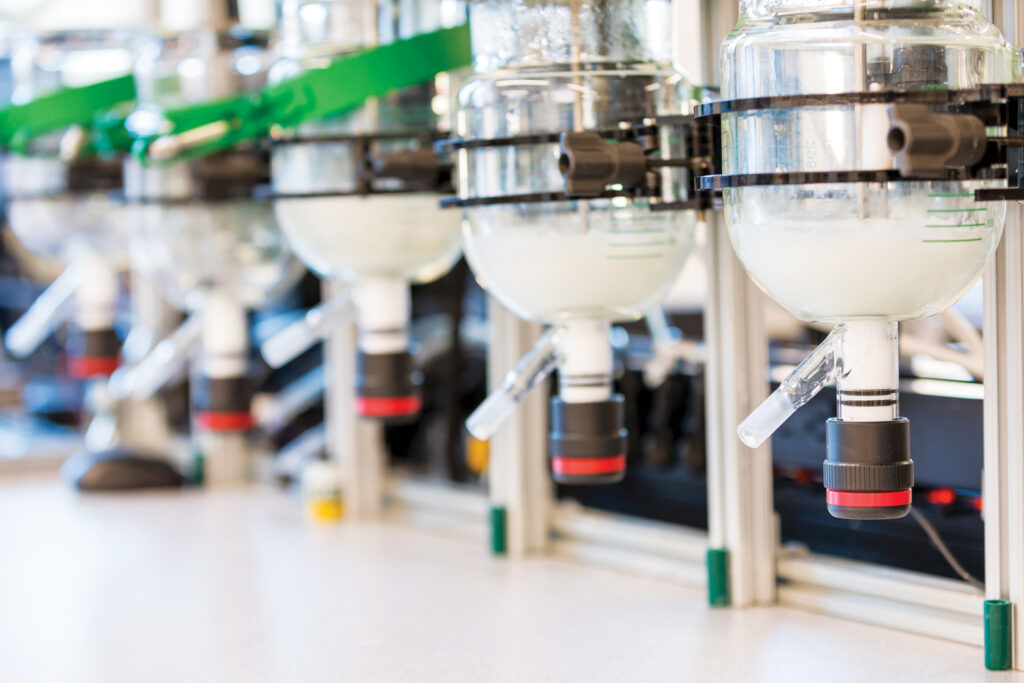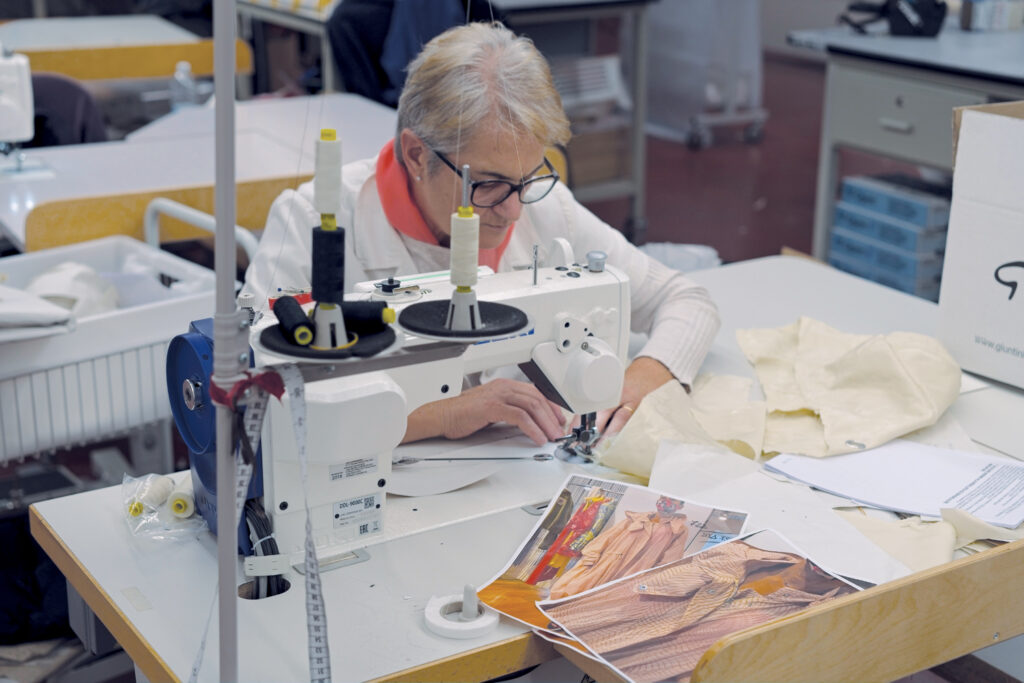
The first garment made with the biologically recycled polyester process by Protein Evolution Inc., a “parachute” parka, was on display at the 28th meeting of the Conference of the Parties (COP28) in December in Dubai, United Arab Emirates, at designer Stella McCartney’s sustainable innovation exhibit. COP28 is part of the series of United Nations Climate Change negotiation meetings among worldwide government delegations and other organizations. The parka’s fabric was created from textile waste and rigid packaging waste.
Protein Evolution, of New Haven, Conn., has developed a textile recycling process called Biopure™ that takes mixed plastic and textile waste, analyzes its composition to prepare it for biological recycling, and then applies enzymes designed using artificial intelligence (AI) to break it down into feedstock, such as polyester chips for fiber and fabric manufacturing.

First, computers simulate evolution for a library of enzymes. “After several rounds of screening new enzyme libraries, we can discover an enzyme with the right mutation set to perform under industrial conditions,” says Connor Lynn, company co-founder and chief business officer. “AI enhances this process by analyzing the large amounts of screening data, identifying patterns and correlations between enzyme structures and desired traits, and ultimately suggesting targeted mutations with higher fidelity of success, accelerating the discovery of high-performing enzyme variants.”
After the polyester waste is broken down, the result is indistinguishable from the original raw materials, for a circular process. And the creation of the enzymes and recycled feedstock will be able to be done at scale, quickly.

“We are currently exploring the development of new enzymes capable of breaking down materials like nylon and polyurethane,” he says.
Funding for Protein Evolution was led by Collab SOS, a climate fund belonging to Collaborative Fund, among other organizations. Collab SOS is in partnership with designer and company investor Stella McCartney. Protein Evolution had been testing its processes for the prior year with textile waste from McCartney’s clothing production.
The Stella McCartney brand site says it’s committed to innovation, traceability, and sustainability and circularity in fashion production. The company replaces materials such as leather, feathers and fur with alternative materials and uses blockchain technology to document its sourcing, such as regenerative cotton with partner SÖKTA.
 TEXTILES.ORG
TEXTILES.ORG


